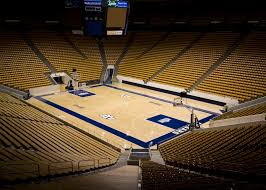arena
英 [əˈriː.nə]
美 [əˈriː.nə]
- n. 舞台;竞技场
- n. (Arena)人名;(英)阿里纳;(意、西、葡、德)阿雷纳
使用频率:

记忆方法
记忆“arena”的方法是将它与“air”和“en”结合,形成一个画面:想象一个圆形的“air”环绕着一个舞台或场地“en”,就像古代的斗兽场(古罗马竞技场)那样,这就是“arena”的意思。通过这样的联想,单词“arena”就与一个具体的场景联系起来了,便于记忆。
以上内容由AI生成, 仅供参考和借鉴
中文词源
arena 竞技舞台
来自拉丁语harena , 沙,指古罗马竞技场(斗牛场),铺沙以吸干血迹。
英语词源
- arena
-
arena: [17] The original sense of Latin (h)arēna was ‘sand’ (hence the English technical term arenaceous ‘sandy’ [17]). The central, ‘stage’ area of classical amphitheatres, where contests were held, was covered with sand (to soak up the contestants’ blood) and so by metaphorical extension arēna became the term for this central area, and hence for any enclosed place used for contests. The word may ultimately be of Etruscan origin.
- arena (n.)
- 1620s, "place of combat," from Latin harena "place of combat," originally "sand, sandy place," perhaps from Etruscan. The central stages of Roman amphitheaters were strewn with sand to soak up the blood.
权威例句
- 1. A 20,000-seat arena with a retractable roof is planned.
- 一个有两万个座位、带可开合顶棚的体育场正在规划中。
- 2. Oil speculation proved a natural arena for his skills.
- 在石油业中进行投机活动对他来说游刃有余。
- 3. The competitors cantered into the arena to conclude the closing ceremony.
- 选手们慢跑进入竞技场,为闭幕式画上了句号。
- 4. They appeared on an edition of BBC2's Arena.
- 他们在英国广播公司二台《竞技场》的一期节目中亮相。
- 5. The arena was scarred by deep muddy ruts.
- 赛场上留下了深深的车辙泥痕。